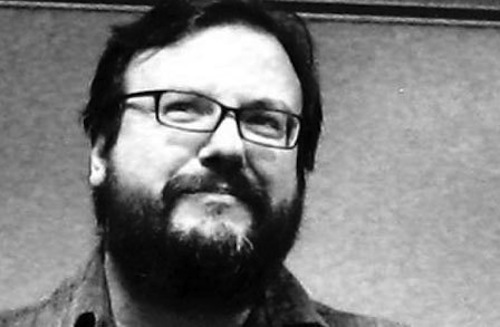John Beer on Science & Poetry at NPR

Our pal John Beer is heard from over at NPR, where interviewer Adam Frank concerned himself with the meaningfulness of difficulty in relation to poetry and science. "Beer is author of the much praised The Waste Land and Other Poems. It takes guts to give your work the same title as Eliot's and by all accounts he pulled it off." More from their conversation:
In response to my question, "What does it meant for a poem to be hard?" Beer said:
There are, it seems, as many ways for a poem to be difficult as there are for it to be a poem at all. For most people, a lot of poetry written before the twentieth century will be a challenge: the vocabulary will often be unfamiliar, the syntax may be more complicated than we are accustomed to reading, and allusions, especially to classical learning, abound.
But Beer emphasized that our expectations about poetry can also be part of the problem:
It seems to me that one of the chief barriers to deep engagement with poetry is an anxious requirement that everything snap into place immediately — that if you're not "getting it," that's a flaw in you or in the poem.
For Beer a poem is a kind of living thing to be experienced, rather than an explanation to be unpacked:You can live somewhere new for a while and still not have a strong sense as to where the best restaurants are, or find yourself getting lost on a regular basis. Poems are likewise to be lived with.
I liked Beer's metaphor about living uncomfortably in the midst of a poem you don't understand. That speaks to hidden similarities between physics (and all science) and poetry (and all the arts). In my own experience, for example, you do have to move in with a difficult piece of mathematical physics. It comes to you slowly. You read it, work out some details, get lost, come back again later.
But as to needing help with understanding a poem or physics, Beer says that popular accounts of science (which is often what we do here at 13.7) and classes on poetry are different beasts:
I do think that it enriches one's experience of the poem to know what it's referring to. ... But I'm not sure I'd think of such trots as essential, or even as functioning quite the same way that a popular account of relativity would work. In the latter case, the point would be to try to convey as much of the conceptual structure and implications of a theory as possible without going fully into the rigorous details. For some, the rough understanding provided by the popularization would be as much as they want; for others, it might lead to a desire to learn enough physics and mathematics to tackle the full account.
Read it all here; you could also take John's advice, and listen to Eliot's "The Waste Land" before you (re-)read it.
http://www.youtube.com/watch?v=jkQ3kxQURcI


